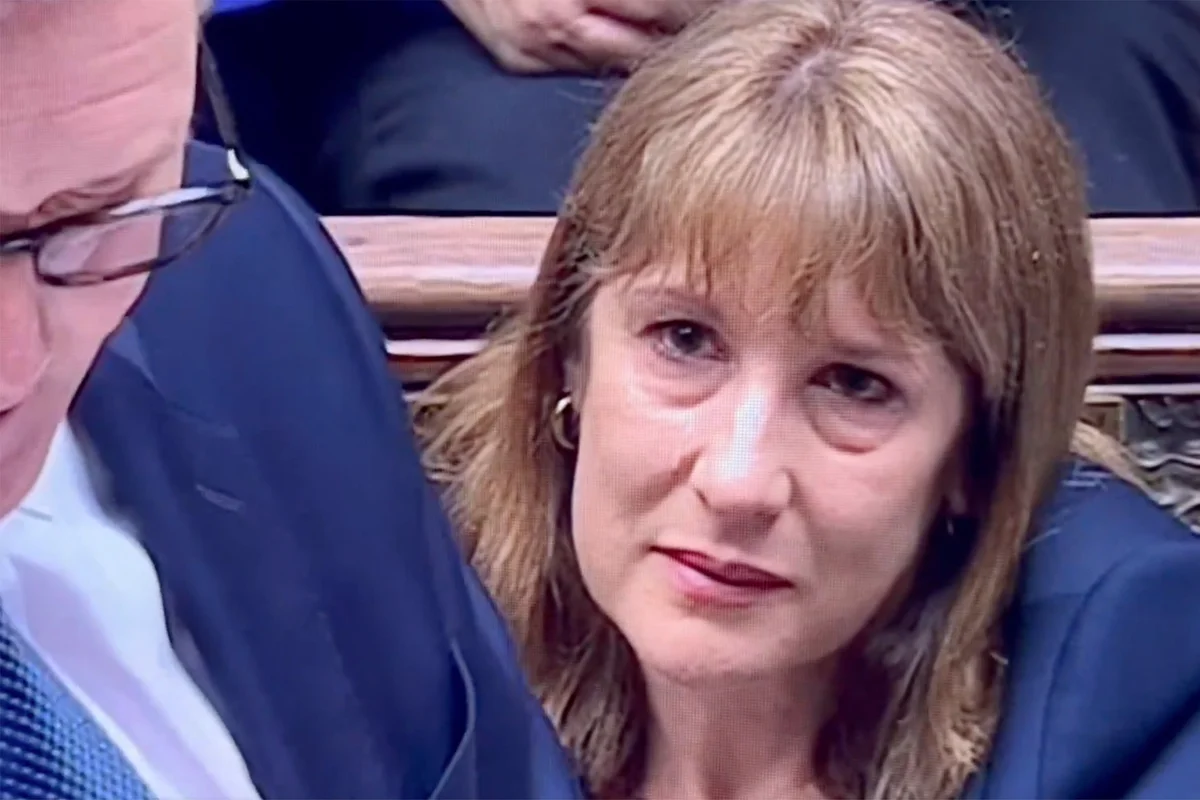By Victoria Richards
Imagine being Rachel Reeves, for a moment. You are sitting in the House of Commons, surrounded by your peers; there to help defend your government’s decisions on welfare reforms after nights of heavy in-fighting and rebellion.
The weight of being the first female chancellor in British history lies heavy on your shoulders; your already watered-down plans to make savings with welfare cuts, even more so. I must not crumble, you might tell yourself.
In front of you: not only the glare of the cameras live-streaming Prime Minister’s Questions to the nation and a gallery of front and backbenchers, but Keir Starmer himself – friend, loyal supporter, employer. And then, in a devastating blow, he fails to openly back you, despite stating on the record in January that you were safe in your job. I’d cry, too, if I were Reeves. Wouldn’t you?
The prime minister’s press secretary has since issued a statement confirming that Reeves has his “full backing”, while the chancellor’s own spokesperson said she was crying over a “personal matter”. But it didn’t stop Kemi Badenoch, of course, going in for the kill. She challenged the prime minister at the despatch box with a snipey: “How awful for the chancellor that he couldn’t confirm that she would stay in place”; and landed a double-blow by pointing out that Reeves looked “absolutely miserable”.
She scarcely needed to. We could see it for ourselves – and it was heartbreaking.
Until now, Reeves has been a perfect stoic: unwavering in tone and in message; delivering bad news (and there’s been an awful lot of it in the year Labour have almost been in power) rhythmically and repetitively, without flinching. Even when pushed and criticised, she doesn’t lose her cool. This has led, predictably, to accusations of being robotic and of failing to care; of being emotionless and dispassionate.
It has also allowed her critics to blame her almost entirely for the poisonous legacy she inherited after 14 years of Conservative rule: the £22bn “black hole” in the nation’s finances and the many unpopular decisions (and U-turns) made afterwards. Some will say that the fact that her £9.9bn of headroom against her fiscal rules has now all but evaporated is entirely her own fault, as was her near-total (but not quite) about-turn on winter fuel payments, as was her deeply divisive spending review, as is the country’s stagnant economic growth.
But to my mind, the chancellor’s track record of self-composure in the face of public dissent is something to be praised, even admired. She is not without feeling; she’s proven that time and time again – and not just at PMQs.
She revealed the soft shell beneath her steely exterior when writing for this newspaper about free school meals, talking of her childhood – she grew up in Lewisham, south-east London, to a teacher and a social worker, where she says she saw “first hand the impact of underinvestment in our country’s state schools”.
“My sixth form was housed in a couple of prefab huts in the playground,” she said. “The library, meant to be a sanctuary of learning, was turned into a classroom simply because there were more students than space. I felt then, as I do now, that successive Conservative governments did not care about schools like mine, communities like mine, or the kids I grew up with.”
This was the real Rachel Reeves: the woman behind the careful monotone, the person beneath the impossible choices. And whatever the reason for her tears, it was the real Rachel we saw today, crying openly in the Commons – not that it will do her much good. For she will now be subject to every tired and gendered stereotype that haunts women in politics and outside of it.
Who can forget the images and memes of a tearful Theresa May, crying as she resigned from office in 2019? Hearing her voice crack when she said running the country she loves had been “the honour of my life” humanised her, but also damned her. She never recovered.
Nobel Prize-winning scientist Sir Tim Hunt once said women shouldn’t be allowed to work in laboratories because, “when you criticise them, they cry”. Oprah Winfrey revealed that she was criticised at US television news programme 60 Minutes for expressing too much, even in the way she said her name – and was advised to “flatten out her voice and show less emotion”.
One former Donald Trump campaign adviser called Vice President Kamala Harris “hysterical”; and who can forget the US president describing his competitor, Hillary Clinton, as “a totally unhinged person”? According to Forbes, as many as 13 per cent of men and women have doubts about women’s emotional suitability for politics: the equivalent of one in eight people.
For Reeves – our supposed “iron chancellor” – daring to display real emotion in the gladiatorial bear-pit of politics invites all the predictable tropes of “hysteria”; of women being “too emotional” to make difficult decisions – let alone with the public purse. It may be human, but it will also haunt her for as long as she lasts in office.
